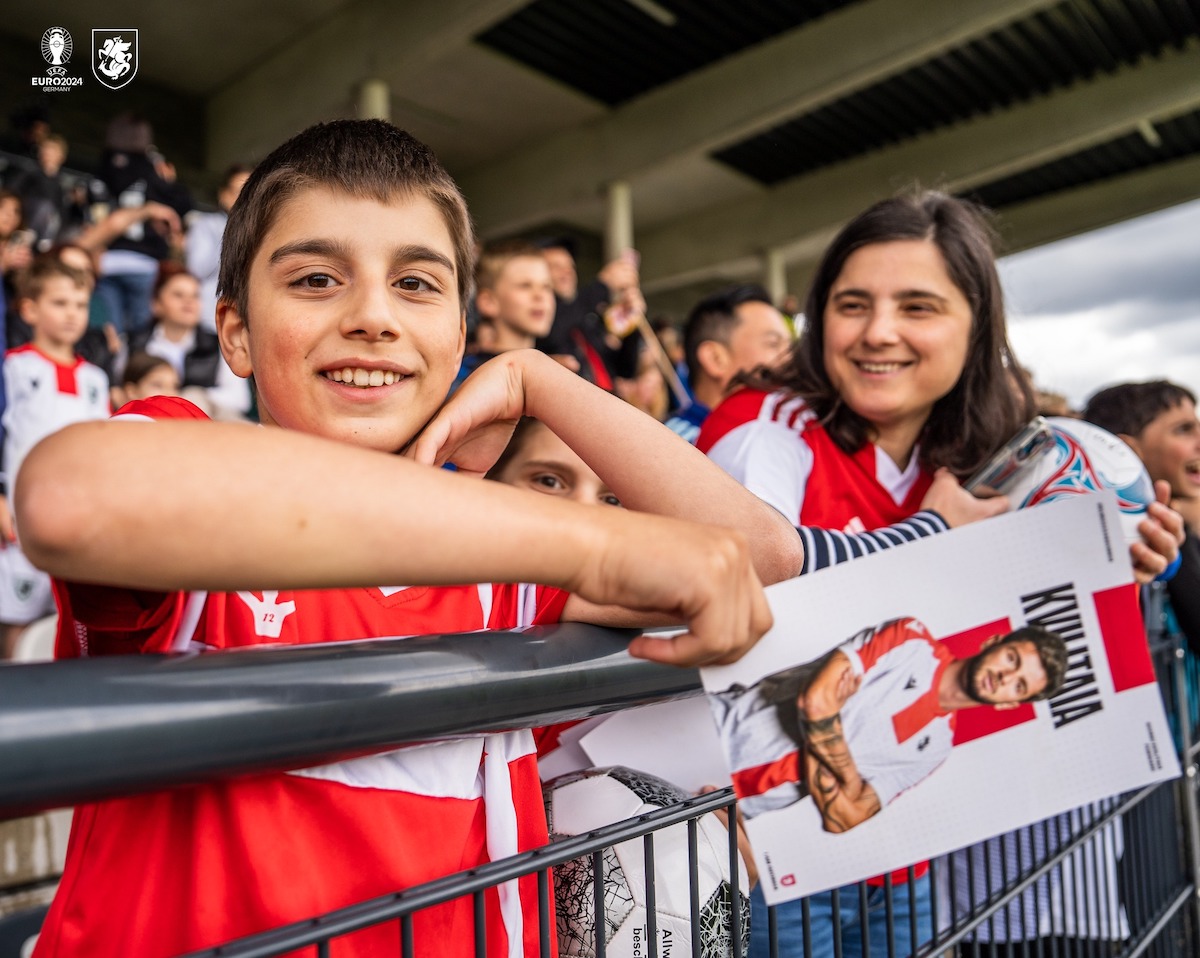Scandal over the Georgia-Czech football match
Georgia-Czech football match
On September 7, a football match between Georgia and the Czech Republic will take place in Tbilisi, with all tickets already sold out. This will be the first game the Georgian national team plays at home since the European Championship, making it particularly significant for local fans. However, they are unhappy that the match will be held at the Mikheil Meskhi Stadium, which has limited capacity, leaving many unable to attend. The larger Dinamo Arena would have been more suitable for an event of this scale, but it wasn’t chosen. The Georgian Football Federation (GFF) and the stadium’s management blame each other for this decision.
The Georgia-Czech match is the first of three UEFA Nations League games, all of which will be held at the Mikheil Meskhi and Batumi stadiums, which hold half as many spectators as Dinamo.
The Football Federation’s decision has sparked dissatisfaction and criticism among fans. According to the Federation, Dinamo Stadium is too worn out. However, sports circles believe that businessman Roman Pipia, who manages the stadium under a lease agreement, wasn’t forgiven for openly opposing the “foreign agents” law.
Football Federation’s arguments
According to Temur Pirtakhia, the director of Dinamo Arena, they offered the Georgian Football Federation (GFF) the option to use the stadium’s second tier for the UEFA Nations League matches, which would allow for over 41,000 spectators.
However, the Football Federation deemed the use of only the second tier as “unserious.”
In an interview with pro-government media, GFF president Levan Kobiashvili stated that there is a report indicating that one of the tiers of Dinamo Stadium requires thorough inspection, and the Federation’s decision was based on this document.
“We communicated with the stadium’s administration and received both written and verbal confirmation from them that they cannot provide us with the full stadium at this time.
I don’t think the small group speculating on this issue is genuinely interested in football, our country, or anything at all. They have their own agenda, and that’s unfortunate.
This is an official match under UEFA, so it’s very important for us to ensure that UEFA has all the documents and information about the stadium’s safety…
We reiterate that there is a letter from the stadium administration acknowledging the well-known issue with the first tier,” said Kobiashvili.
Georgia-Czech football match
Dinamo Arena’s response
On August 6, Temur Pirtakhia suggested using the second tier and VIP boxes in a letter to David Mujiri, the General Secretary of the Football Federation. He also reminded them that in March 2024, Dinamo Stadium hosted the European Championship playoffs, as well as three group-stage matches and one quarterfinal of the 2023 UEFA European Under-21 Championship.
The last major renovation of the stadium took place in 2015 and was funded by the state budget. The stadium’s administration claims that during this restoration, all existing issues were fully addressed, and the stadium’s stability has remained unchanged since then, as confirmed by all expert evaluations conducted thereafter.
Background
On July 29, Georgian prime minister Irakli Kobakhidze, during a broadcast on Imedi TV, once again discussed plans for a new stadium. For the first time, he mentioned that Dinamo Arena, named after Boris Paichadze, is deteriorating:
“Dinamo Stadium, the main stadium of our country, is deteriorating, and there may be issues with its stability. Therefore, we need to develop new infrastructure in this area.”
In his speech at the parliamentary plenary session on June 28, Kobakhidze stated that the new stadium would be used for both football and rugby. Additionally, the Georgian government linked the construction of the new stadium to their bid to host the UEFA Champions League final.
Businessman Roman Pipia, who leased Dinamo Stadium from the state in 2011 for 49 years, responded to the prime minister’s remarks by stating that this stadium is a historic site that cannot be deemed “unnecessary” based on someone’s interests. According to Pipia, there is no evidence to support the claim that the stadium is deteriorating.



















